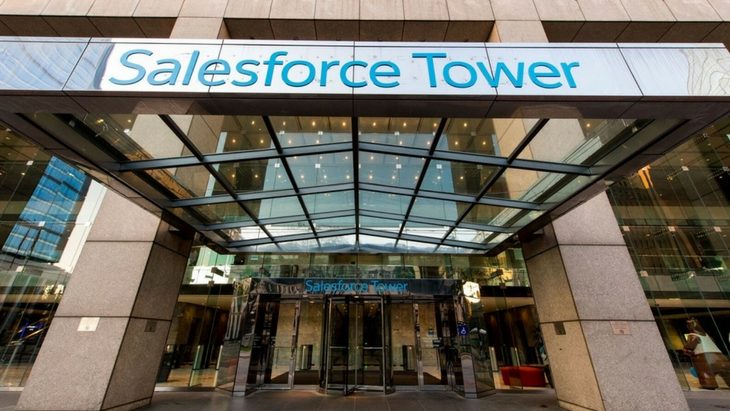
A tech job can be any role where you work adjacent to technology.
Historically, the definition of a tech job may have required working, building, or working directly with software, tools, or other tech-related products — possibly in information technology (IT) or as a software developer. However, as technology has become commonplace in a wide range of industries, “tech job” applies to a variety of careers.
Today, working in tech can mean anything from being a hospital’s network administrator to handling the sales or support teams at a tech company.

For most people, the term tech company might conjure images of a growing startup or eCommerce company. You might even picture the “Big Five” of Apple, Alphabet Inc (Google), Facebook, Microsoft, or Amazon. And while these are great examples of tech companies, the definition of a tech company, similar to tech jobs, hasn’t always meant just one thing and has expanded over the years.
In the 1980s, being a tech company likely meant being involved in the manufacturing of products and software for the personal computer — Apple, IBM, Intel, Microsoft, or Xerox. The dot-com boom of the 1990s saw the rise of eCommerce companies like Amazon. The 2000s saw the emergence of smartphones, social media, software-as-a-service (SaaS), and companies like Facebook and Salesforce.
Today, as technology impacts a variety of industries and all aspects of life, the definition of tech company is no longer limited to just those companies producing technology. Borrowing from the earlier example, “tech company” can mean everything from a hospital that built its own patient management system to a traditional software company.
The tech companies of today can be generally classified into one of these four groups:
A Tech Product company is likely what most people imagine when they picture a tech company. This is an organization that builds and sells software, data, or electronic hardware products. Examples of a Tech Product company include Carbonite, DemandJump, Genesys, Salesforce, and Terminus.
Instead of offering a product, what a Tech Service company offers is personnel. Tech Service companies provide people-powered services like consulting, information technology (IT), or outsourced development. Examples of Tech Service companies include DMI, Infosys, Lev, Pondurance, Trek10, and SEP.
Tech Infrastructure includes tech companies that provide the systems and facilities that enable web-based communications and commerce. Tech Infrastructure companies build and operate data centers or are internet providers. Examples of Tech Infrastructure companies include AT&T, Comcast Business, Lightbound, and Verizon.
Tech-Enabled is the broadest application of the term tech company. Tech-Enabled companies are in industries that most people view far outside of the tech industry, but are finding ways to build tech into their products and have a need for tech-skilled workers. Examples of Tech-Enabled organizations include Allegion, Cummins, Franciscan Alliance, KAR Auction Services, Lilly, NCAA, Raytheon, and Sallie Mae.
At one point, if you wanted to find a tech job you essentially had to live in a major metropolitan area like New York City or the San Francisco Bay Area. And while living close to a tech hub may provide direct access to tech employers, more companies are shifting to a distributed (remote) workforce.
As far as finding the jobs themselves, many companies use popular networking sites like LinkedIn and Glassdoor to advertise for jobs. Regional tech advocacy groups like TechPoint will often have their own job boards for member companies to promote jobs within their local tech hub.
TechPoint’s Job Board will often have anywhere between 250-500 tech jobs with current openings.

A tech hub can be any location with the necessary infrastructure and community to help tech companies grow.
Legacy tech hubs have centered around established areas of commerce in major metropolitan areas like the San Francisco Bay Area or Seattle. However, increasing costs associated with real estate, taxes, and the average cost of living have encouraged tech growth in other areas of the country.
The lower cost of doing business and access to infrastructure has driven some tech companies to more affordable mid-sized cities like Kansas City or Indianapolis. Proximity to research schools and talent has also promoted the growth of tech hubs in areas like the Research Triangle or near college towns like South Bend, Indiana.
However, regardless of where tech jobs are, increasingly more companies aren’t limiting themselves to just hiring within their local tech hub. More companies are moving to a distributed workforce.
With the growing popularity of f tech companies moving to a distributed (or remote) workforce, remote tech jobs are more available than ever before. Remote work (also known as telecommuting or work-from-home [WFH]) is a work environment that allows employees to perform their duties outside of a company’s office.
For the employee, a remote tech job may offer the ability to save money on commuting or other work-related expenses not often covered by their company. For some, a remote tech job may provide a better work-life balance.
For a tech company, the benefit of a distributed workforce is the ability to open up their talent pool outside of the immediately adjacent area. It can also provide savings on the cost of operating multiple physical locations for clusters of employees who may live in different regions.
You may think that remote tech jobs are exclusively offered to developers, IT, and other positions that don’t require frequent interaction with customers. However, with the proliferation of Voice-over-IP (VoIP) and video conferencing tools like Zoom, many front-line positions in sales and tech support are now offered as remote roles.
Regardless of experience or degree, an entry-level tech job might be 100% remote today.

As mentioned above, when people think of tech jobs, they have historically pictured positions in information technology (IT) or product development. And with those positions, many people assume there are steep degree requirements for tech jobs.
It is increasingly common for tech companies to hire employees with more short-term training like associate degrees, certifications, or coding academy certificates. The tech industry has an ongoing need for specialized talent, which occasionally leads to a scarcity of college graduates that attended a traditional four-year bachelor’s degree program. Some employers have started to adopt skills-based hiring practices, removing further barriers.
A great alternative to hiring bachelor’s degree graduates is for tech companies to hire employees from short-term programs. Community colleges, like Ivy Tech Community College, offer short-term credentials like certificates and associate degrees in a variety of tech-related disciplines that can be completed in as little as 1-2 years.
Similarly, coding academies or boot camps, like Eleven-Fifty Academy, can offer full-time or part-time training in development, information technology (IT), and other fields that can be completed in less than a year. And, many coding academies will have partnership agreements with local tech employers to hire recent graduates.
While having a college education or other certification can be helpful in getting a job in tech, it isn’t always a requirement. Many tech companies hire for entry-level positions in sales and customer support that don’t require a college degree. Much larger tech companies may even have internal training programs that allow employees in entry-level positions to pivot into other departments such as marketing or quality assurance (QA).
While community colleges and coding academies offer great short-term options for job-seekers to train for a tech career, not everyone has the available time or disposable income for these programs. This can be especially true of job-seekers later in their careers with families or other financial obligations.
The good news is that many tech companies have entry-level jobs that don’t require prior experience, a degree, or certification. Many of these jobs are business-skilled positions that don’t always require formal education or training, possibly in sales or customer support.
Tech companies will typically have thorough onboarding processes that can last weeks or even months that will train new hires in the skills and knowledge needed for these roles. As mentioned before, large tech companies may even have internal training programs or education stipends that allow employees in entry-level positions to move to other roles or departments within the company.
There are quite a few options available to job-seekers looking for an entry-level position without experience. Entry-level tech jobs that don’t require formal training are typically business-skilled positions like sales, customer support, human resources, billing, or marketing. This is opposite to tech-skilled positions that often require formal training like product development, cybersecurity, user-experience (UX) design, or data science.
While many business-skilled entry-level tech jobs won’t require formal training in a relevant field, some tech companies may require or prefer you to have some college education. However, this should not prevent you from applying, as many companies will waive any education requirements for business-skilled roles for the right candidate.

Sales professionals must have strong communication skills and feel comfortable speaking in front of others. Sales require a competitive spirit and a passion for working with people every day, all day. Sales professionals have the foresight to predict potential problems and understand how to resolve them with clever solutions. They know how to ask the right questions to help prospects discover their reasons to change.
Education requirements may vary depending on the position, but either a high school degree or some college is preferred. Sales, however, can be self-taught.
Examples of tech jobs in sales may include:
Sales development representatives (SDRs) are inside sales reps who solely focus on outbound prospecting. They help with the lead qualification process, which allows account executives to focus on closing deals instead of prospecting.
Account executives (AEs) serve as the direct link between the customer or client and the company providing the service or product. They foster healthy relationships with clients to ensure successful implementation of the product and encourage future sales.
Sales engineers translate and explain complicated technical information to customers and clients, focusing on revealing how a product can solve specific problems. They also confer with customers and engineers to assess equipment needs and to determine system requirements.

Support professionals have respect for all clients and team members and enjoy engaging with people via phone and email to help them solve problems. They can effectively prioritize tasks and reliably meet deadlines while applying their knowledge to novel situations and tasks. They have strong reasoning and analytical abilities and may have a desire to eventually move into an IT role. Support can also be a path toward IT or customer success.
Education requirements could include an associate’s degree or a bachelor’s degree may be required, but some organizations accept experienced high-school graduates.
Examples of tech jobs in support may include:
Help desk analysts provide technical support for any aspect of the information systems department, including computer hardware, operating systems, applications, and networks. They support all of the applications and software of a business and resolve hardware and software problems as quickly as possible.
Computer user support specialists provide technical assistance to computer users, such as assistance concerning the use of computer hardware and software, including printing, installation, word processing, electronic mail, and operating systems.
Customer service coordinators often work for employers that serve customers by phone or on a walk-in basis. Their responsibilities include handling customer questions or requests, processing phone orders, entering data into a computer, preparing invoices, and providing the status of product orders or services.

Marketers enjoy thinking critically about ideas and communicating information in writing, audio or video. They conduct research to understand their audience, clients, and marketplace and can creatively design web pages to fit your brand. They use data to track and measure the success of their various marketing campaigns. They love reaching out to others, making connections, and selling their product or service.
Education requirements could include an undergraduate degree in Marketing, Communications, Journalism, Public Relations, or a similar field. Some skills can be self-taught.
Examples of tech jobs in marketing include:
Marketing managers develop, implement and execute strategic marketing plans for an entire organization or lines of business within brands and organizations to attract potential customers and retain existing ones. They can also be platform-specific or in charge of initiatives executed in certain cities, regions, or countries.
Market research analysts gather and analyze data on consumers and competitors. Market research analysts study market conditions to examine potential sales of a product or service. They help companies understand what products people want, who will buy them, and at what price.
Product marketers help organizations communicate information about new products and find the best ways to present a product’s message, brand, and benefits to the potential customer. They lead marketing teams in nurturing a product through its lifecycle, providing consistent marketing direction and vision along the way.

Human resources and office administration professionals support the company’s goals with various HR initiatives and are comfortable handling sensitive information. Their strong communication skills mean they can communicate well with members from various departments in the organization. They have compassion for others and a willingness to listen to others’ problems, and their high emotional intelligence allows them to resolve conflict. They can present a positive company image to potential job candidates and anyone who visits.
Some jobs require a bachelor’s degree in human resources, business administration, or a related field, but some require only a high-school diploma.
Examples of tech jobs in HR or office administration might include:
Administrative assistants help with correspondence, keep records, make appointments, and carry out similar tasks. They may also assist with event planning, researching information for projects, and database entries.
Talent recruiters are tasked with identifying and pursuing candidates for potential job openings. They play a key role in filling important, hard-to-fill positions where competition for qualified candidates is strong.
Human resources managers plan, direct, and coordinate the administrative functions of an organization. They oversee the recruiting, interviewing, and hiring of new staff, consult with top executives on strategic planning and serve as a link between an organization’s management and its employees.

Product development professionals have strong reasoning abilities and enjoy critical thinking. They are curious about how things work and have a tenacity for solving problems. Product developers are voracious learners who enjoy challenging tasks, and they’re not afraid to take on something new.
An undergraduate degree in computer science, math, computer engineering, or software engineering is preferred, and a self-taught or intensive boot camp-taught programming and project experience is a plus.
Examples of product development roles include:
Software engineers write, edit and test programs and may specialize in a few areas of development, such as networks, operating systems, databases, or applications, and each area requires fluency in its own set of computer languages and development environments.
DevOps engineers work with software developers, system operators, and other tech staff to oversee code releases. They build and maintain tools for deployment, monitoring, and operations, and troubleshoot and resolve issues in dev, test, and production environments.
Quality assurance engineers are responsible for assessing the quality of specifications and technical design documents to ensure timely, relevant, and meaningful feedback. They are involved in planning and implementing strategies for quality management and testing.
Product managers define consumer needs and business objectives, translating them into viable, innovative products. They combine business knowledge, technology, and design to discover a product that is viable, feasible, and usable.

Data science professionals enjoy extensively thinking about solving abstract problems about data and technology. To do so, they must also show a strong interest in computer science, math, and ongoing education and research to continue to stay up to date in the field. Data science professionals are curious and voracious learners and have a natural ability to share and simplify.
An undergraduate or graduate degree in Math, Statistics, Computer Science, or another quantitative discipline is usually required. Coursework in Linear Algebra, Calculus, Probability, Discrete Mathematics, Graph Theory, Statistical Modeling, Bayesian Analysis, Time Series Analysis, Data Structures and Algorithms, Numerical Methods, Machine Learning, and Data Mining is encouraged.
Examples of data science positions include:
Data scientists design and construct new processes for data modeling and production using prototypes, algorithms, predictive models, and custom analysis. They take an enormous mass of messy data points (unstructured and structured) and use their formidable skills in math, statistics and programming to clean, manage and organize them.
Data engineers build massive reservoirs for big data. They develop, construct, test and maintain architectures such as databases and large-scale data processing systems.
Machine learning engineers typically have stronger software engineering skills than data scientists and work with engineers to maintain production systems. They often code the algorithms provided by data scientists into the production system.

You have a desire for artistic expression that you enjoy using to start up and carry out design projects. Designers can come up with functional solutions to complex problems and have a knack for focusing on small details. In addition to personal creativity, designers can relate and empathize with customers, and incorporate research in industry trends and design standards.
While a degree in multimedia design can be helpful, many skills must be self-taught.
Examples of design jobs within tech include:
Product designers define the experience and interface of products as well as the company and product naming. A product designer will create wireframes, prototypes, and style guides as well as conceptualize naming conventions. They research how to improve products and interact with engineers and developers who build the product and shape the final outcome.
Marketing designers use different typography, composition, color, and visual identity to create marketing assets that represent the product or company to the outside world and compel prospective or current customers to feel an emotion or take an action.
Interaction designers focus on how a user interacts with a product. This role is typically very specialized in user interface details such as movement, animation, and visual aesthetics.

IT cybersecurity professionals have the ability to come up with unique solutions to complex problems, while also following stringent sets of procedures. They use strong reasoning and analytical abilities to solve problems, and also feel comfortable presenting these ideas in front of others.
Educational requirements could include a bachelor’s degree in computer science, programming, or a related field. Some organizations will also look for advanced certificates or training.
Examples of IT and cybersecurity jobs in tech include:
Network and computer systems administrators manage the day-to-day operation of these networks. They organize, install, and support an organization’s computer systems, including local area networks (LANs), wide area networks (WANs), network segments, intranets, and other data communication systems.
Business analysts evaluate data that is used to support and make informed business decisions. This can be in relation to emerging external trends or changing internal performance demands.
Technical architects define the overall structure of a program or system and encompass both technical and management skills. They are responsible for improving end-user experience or ensuring a company’s internal digital framework works smoothly.
Cybersecurity administrators help prevent attacks through their expertise and knowledge of databases, networks, hardware, firewalls, and encryption. They keep computer systems running smoothly, prevent the theft of financial and personal information, and block intruders from accessing and divulging proprietary data.

Customer success professionals enjoy building relationships with and helping people and take pride in being the voice of the customer. They have the technical aptitude and ability to learn software products and enjoy understanding how something works. An important role for customer success professionals is to translate software to help customers understand the best ways to utilize their products based on business needs.
Bachelor’s degree is typically required, and Project Management/PMP certification is a plus.
Examples of customer success jobs in tech include:
Customer success managers represent a company or brand and are the primary point of contact for any customer concerns regarding product, support, or billing. Their purpose is to provide the best customer experience possible, which in turn will result in customer retention and expansion.
Engagement managers support the billing and invoicing of clients and manage client expectations. They handle all accounts payable services and ensure that contracts are carried out according to agreed terms.
Implementation managers work with project managers to implement an information system or new process for the customer. Similar to a project manager, implementation managers ensure each member of a project team completes the steps to implement a new process.
Customer support representatives interact with customers on behalf of an organization to provide information about products and services, take orders, respond to customer complaints, and address emergency issues.
Technical account managers provide technical, business, and product knowledge to oversee and address customers’ technical needs. They support and strengthen existing customer relationships and lead all technical aspects of the company’s largest customers.

Professionals in finance enjoy gathering and analyzing complex information. Their intellectual curiosity fuels a desire for continuous improvement, and they can follow stringent financial procedures, rules, and laws. Finance roles typically require the ability to work well individually or on a team and to communicate effectively across a variety of departments.
A bachelor’s degree in accounting, finance, or a related field is typically required.
Examples of finance jobs in tech include:
Accountants record business transactions on behalf of an organization, report on company performance to management, and issue financial statements. They are trained in bookkeeping and preparation, auditing and analysis of accounts.
A financial analyst researches macroeconomic and microeconomic conditions and gathers financial information along with company fundamentals to make business, sector, and industry recommendations to the company. They assess the performance of stocks, bonds, and other investments and guide making investment decisions.
Financial managers provide financial reports and interpret financial information to managerial staff while recommending further courses of action. They advise on investment activities and provide strategies that the company should take to maintain the financial health of the organization.
Read more about tech jobs in finance here.
As is the case with any industry, some of the highest paying jobs in tech reside in leadership positions like the c-suite or vice presidents. Glassdoor lists the national average for Chief Executive Officers (CEO) at around $165,088, but that varies significantly depending on the local job market. Chief Operating Officer pay is slightly lower at an average of $158,826.
However, while typically reporting to the c-suite, a Vice President of Marketing averages a little higher at around $187,095 nationally. This is likely due to VP-level positions being more common in larger organizations.
Outside of leadership, the best jobs in tech in terms of income potential are typically tech-skilled positions that require some formal education. Examples of these positions could be in product development, IT, data science, or other fields.
While tech-skilled roles often require formal education, this can extend beyond 4-year bachelor degree programs to short-term options. These include learning environments like coding boot camps or even your local community college.
If you aren’t interested in a tech-skilled position, some of the highest paying jobs in tech reside in business-skilled positions. This is particularly true of sales roles that typically have uncapped income potential through commission. Glassdoor places the national average for Enterprise Account Executives at $102,308 per year.
